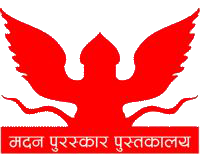|
|
|
|
|
[back] |
| Nepal | |||
|
|
Madan Puraskar Pustakalaya | ||
|
|
|
||
|
Madan Puraskar Pustakalaya (MPP), a non -profit institution, is principally an archive of published materials in the Nepali Language. It has also been working in the field of software localisation and Nepali Language Computing since the year 2000. MPP's involvement in computing began with the Pustakalaya's decision to electronically catalogue its collections nearly a decade ago. Since the available technology (a number of Nepali fonts like Preeti, JagHimali, Kanchan etc) lacked data processing capabilities, as well as inconsistencies in the keyboard mappings and layout, there was no alternative other than to develop a standard keyboard input method with data processing capabilities. |
|
||
|
MPP takes part in promoting ICT as an enabler of national development, supporting the development of reliable ICT infrastructure in the country. Coming up from the year 2000, MPP has made a giant leap in the field of software development. Today, its image in the general public is no longer of an archive house only for the collection of printed materials in Nepali but also as an established institution, which has been continuously working in the field of software development. |
|||
|
|
|||
|
|
Team's Achievements | ||
|
|
|
||
|
The NELRALEC Project, also known as the Bhasha Sanchar Project got started in Nepal with MPP and Tribhuvan University as its project partners in Nepal and supported by the European Commission under its ASIA IT & C program. The chief objectives of the Project is to further integrate Nepal and neighbouring regions in the information society so that they can exploit Information and Communication Technologies through the medium of Nepali, ensuring that this is sustainable. Several important activities are going on under the NELRACLEC Project in Nepal like the gathering of text and speech corpora representing examples of written and spoken texts of literary and other genres available in Nepali language, producing localized basic software for Nepali, producing a corpus-based dictionary of contemporary Nepali, developing basic language processing capabilities for Nepali, producing speech technologies for automatically reading Nepali text, and disseminating technologies to schools and universities and local communities and evaluating their use there. |
|||
|
The 18 months long Dobhase Project got launched in February 2005, as a collaborative project work between MPP and Kathmandu University which was supported by the PAN ICT R&D Program. This is the first English to Nepali Machine Translation Project in Nepal. A working version of this software has already been released in July 2006. Further research and refinements in the software are underway. |
|||
|
|||
|
|
Goals during Second Phase | ||
|
|
|
||
|
Software:
|
|||
|
Research Reports:
|
|||
|
|
Objectives during Second Phase | ||
|
|
|
||
| Technology Development | |||
|
|||
|
|||
|
|||
|
|||
|
|||
|
Research and Others |
|||
|
|||
|
|||
|
|||
|
|||
|
|||
|
|||
|
|||
|
|||
|
|||
|
|||
|
|
Project Team Leaders | ||
|
|
|
||
|
Amar Gurung is the Director of the Nepali Language Computing Project at Madan Puraskar Pustakalaya, Nepal. He is also the Country Project Leader for the Nepal Component of the PAN Localization Project as well as being the Project Manager for Nepal for the Bhasha Sanchar Project. He has done MA in Sociology from Tribhuwan University. |
|||
|
|
|||
|
|
CPI Team Members and their Designations | ||
|
|
|
||
| Management Team | |||
|
|
||
|
|||
| Administrative Support | |||
|
|||
|
|||
|
|||
|
|||
| NepaLinux Development Team | |||
|
|||
|
|||
|
|||
|
|||
|
|||
| Translation Team | |||
|
|||
|
|||
|
|||
|
|||
| Natural Language Processing Team | |||
|
|||
|
|||
|
|||
| Outreach Team | |||
|
|||
|
|||
